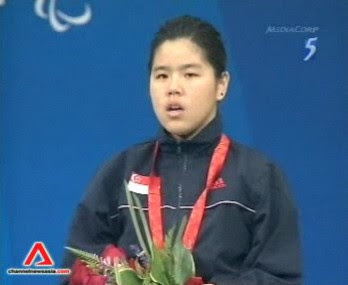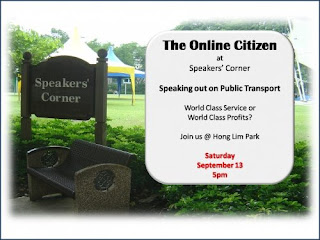Among the goodies to be doled out by the government to encourage couples to have more kids are an additional one month of paid maternity leave, increased Baby Bonus and childcare subsidies, and more tax rebates for working mothers.
I welcome the new measures announced by Prime Minister Lee Hsien Loong. I have to confess that I am an interested party — my wife is due to give birth to our first child in two weeks and we stand to benefit from these new procreation measures. (In case you are wondering, I was not one of those who petitioned the government to bring forward the effective date of these benefits.)
However the financial benefits were hardly factor in us choosing to have children. The reason is simple: Raising a child costs much, much more than any benefits the government can afford to give us. If we had decided to have kids based on the government’s financial incentives, we would have gotten an ‘F’ for our Cost-Benefit Analysis 101 class.
If the government is hoping that the $1.6 billion they are setting aside annually for these benefits is going to increase the fertility rate by much, they are sorely mistaken.
As PM Lee pointed out himself, we are up against very powerful cultural forces working against childbearing. Greater career opportunities, a love for self-serving pleasure, a distaste for doing hands-on work, and the negative portrayal of the traditional family by the media all relegate childbearing to the bottom of the totem pole of priorities in a typical young couple’s mind.
The government needs to tackle the problem at its roots, rather than simply treat its symptoms.
In broad terms, this means investing money and resources into changing young Singaporeans’ mindsets. For example, the state could fund more programmes in the mass media that promote the joys of marriage and parenting. Or it could also fund organisations like Focus on the Family or Centre for Fathering to help them do what they do best.
It will not be easy, and it brings great risks of being accused of being a nanny state. While we may balk at any attempts at social engineering, the serious problem of low birth rates demands serious interventions. The alternative, of course, is to import more foreigners and end up becoming like Gulf emirates Qatar and Dubai where foreign talent makes up the majority of the population.
Non-traditional babies
Singapore also needs to look into nurturing babies from “non-traditional” sources.
Single mothers are an undeniable part of our social landscape. While I believe it is a mistake to have sex and get oneself pregnant before marriage, I also realise that for pregnant single mothers, that mistake has already been made. There is no point punishing the mother further — I don’t believe anyone is foolish enough to set out planning to be an unwed mother. Raising kids is hard enough with two parents, what more with just one?
More importantly, it is unconscionable to punish an innocent, unborn child for his or her parents’ sin by denying the child the benefits and the head start that other children receive.
Therefore I believe that single mothers should receive the same maternity and employment benefits as married mothers. This was an excellent point that was raised by Ms Lee Lilian at the Workers’ Party’s YouthQuake event recently. To do so will not only give her child a more equal start to life, but more importantly could encourage more single mothers to keep their babies instead of taking the easy way out by aborting their babies.
Reduce abortions, please
There are over 12,000 abortions carried out each year in Singapore. Almost a quarter of all pregnancies in Singapore are terminated. Over 60% of abortions are performed on married women. The moral ramifications of this crime against unborn humanity are far reaching and fearful to consider.
Even if one does not believe in the sanctity of an unborn human being, consider that if all pregnancies in Singapore were carried to term, our birth shortfall from the replacement level will be more than halved. Currently Singaporeans are about 23,000 births short of replacing themselves.
We need to do more — much more — to reduce the staggering abortion rate in Singapore. For a start, we need to strongly restrict the use of on-demand abortion as a method of contraception for married women. This was based on an extremely liberal and cold-blooded approach to population control in Singapore during the 1970s and has no place in baby-scarce 21st century Singapore.
Married women should be strongly discouraged — even prevented — from having an abortion without any good reason.
But what are we going to do with all these unwanted babies?
Firstly, I believe parental instincts will kick in once the baby is born, so abandonment should not be an issue.
Secondly, for single mothers who are unable or unwilling to look after their own children, there needs to be a better system for giving up babies for adoption, and for adopting local-born babies. Currently the system is so onerous that couples who wish to adopt prefer to adopt from orphanages in China than from their fellow Singaporeans.
Thirdly, the social sector needs to be expanded for more children’s homes to look after kids who are not able to get adopted out. It may sound cruel to have a child born into an orphanage, but I believe that every life is precious and we can never predict what great contributions a child may make to God’s great earth in the future, regardless of his or her circumstances during childhood.
Work-Life balance
There was little mention about concrete plans to encourage more work-life balance in Singapore. Many of mothers want to return to the workforce after giving birth. However, are reluctant to because they want to be involved in raising their kids and have no intention of returning to the rat race.
Apart from developing a more family-friendly culture, Singapore companies need to seriously look into job redesign to provide part-time or home-based work for mothers. In our digital age, telecommuting is entirely possible for many professional jobs. By hiring two part-timers to fill one full-time job position, companies will not only provide more jobs for mothers but more often than not will be able to get more than half the time from each worker.
Welfarism or financing the rich?
On a final note, I wonder if the $1.6 billion is going to be money well spent. It has been reported that over 40% of the giveaways is going to be in the form of tax rebates. Since only a small percentage of income earners actually pay taxes, tax rebates are essentially carrots used to incentivise well-to-do couples who don’t actually need the extra money. This goes against basic socialist principles (on which Singapore was founded) of redistribution of wealth from rich to poor, not the other way around.
The maternity leave payments should not simply be based on one’s last drawn salary. Can you imagine: a mother who makes $20,000 a month will get $40,000 cash from the government and $40,000 from her company when she would surely have enough savings and investments to not need that money. Therefore I believe that maternity leave benefits should be capped at $3,500 per month so as not to finance the rich to make them even richer.
Similarly tax rebates should be capped at say the first $3,000 of taxable income. In other words, a person earning $10,000 a month should not get any more tax rebates in absolute terms than someone earning $3,500 a month.
Conclusion
No one can fault the government for not trying hard enough to raise our flagging birth rates. But political will, str
ong as it may be, is up against much more powerful societal forces. We need to step out of our box and radically change our approach if we are going to edge our birth rate closer to the elusive replacement level.
.


